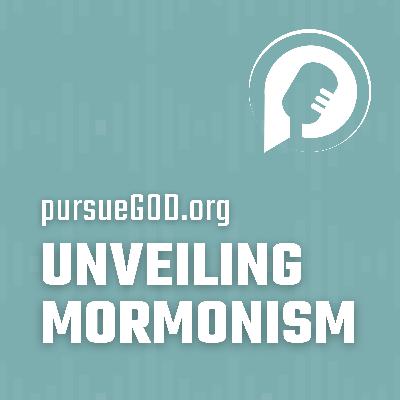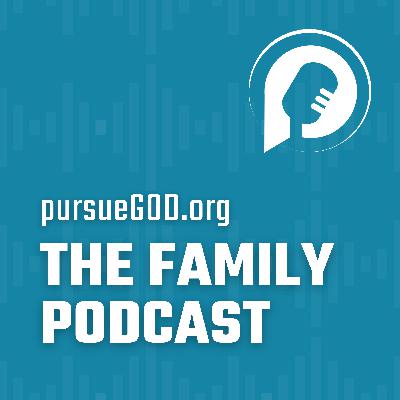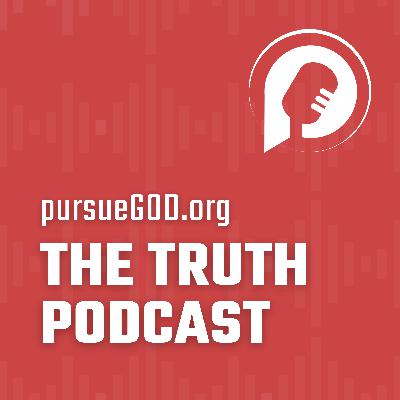How to Pick a Non-Mormon Church - Unveiling Mormonism
Description
Many people coming out of Mormonism ask, “So now that I’m free to choose, how do I pick a church?” In this episode, we explore what it really means to find a healthy, biblical Christian church — one that’s Jesus-centered, Bible-based, and grace-driven.
--
The Unveiling Mormonism podcast pulls back the curtain on Mormon history, culture and doctrine. Join us for new episodes every Monday.
Find resources to talk about these episodes at pursueGOD.org/mormonism.
Help others go "full circle" as a follower of Jesus through our 12-week Pursuit series.
Click here to learn more about how to use these resources at home, with a small group, or in a one-on-one discipleship relationship.
Got questions or want to leave a note? Email us at podcast@pursueGOD.org.
--
Leaving Mormonism can feel like losing your spiritual “home base.” In LDS culture, wards are assigned by address. In biblical Christianity, you’re free to choose a local church family. But freedom raises a wise question: How do you pick a healthy, Bible-teaching, Jesus-centered church?
Start with Scripture, Not a System
Many former Latter-day Saints have heard 1 Timothy 3:15 used to imply that the “true church” must be a single organization with one earthly headquarters and priesthood keys: “This is the church of the living God, which is the pillar and foundation of the truth.” (NLT) Paul isn’t describing a corporate institution; he’s describing a community of believers built on Christ with qualified local leaders (read all of 1 Timothy 3). The foundation is Jesus himself—not a modern hierarchy. “For no one can lay any foundation other than the one we already have—Jesus Christ.” (1 Corinthians 3:11 , NLT) “Together, we are his house… built on the foundation of the apostles and the prophets. And the cornerstone is Christ Jesus himself.” (Ephesians 2:20 , NLT)
In other words, the “pillar and foundation of the truth” is the global family of men and women who belong to Jesus and uphold his Word in local congregations.
Three Non-Negotiables
Healthy churches are:
- Jesus-centered (the person and work of Christ are central),
- Bible-based (Scripture is the final authority),
- Grace-proclaiming (the gospel is good news, not good advice).
“All Scripture is inspired by God and is useful to teach us what is true.” (2 Timothy 3:16 , NLT)
“There is salvation in no one else!” (Acts 4:12 , NLT)
“For everyone has sinned… Yet God, in his grace, freely makes us right in his sight.” (Romans 3:23-24, NLT)
A Loving but Discerning Warning about the Prosperity Gospel
Some churches teach that God guarantees health, wealth, and constant success if you have enough faith. That’s not the New Testament gospel; it’s motivational religion with Bible words. Jesus said, “If any of you wants to be my follower, you must give up your own way, take up your cross daily, and follow me.” (Luke 9:23 , NLT) The Bible prepares us for valleys as well as victories: “Even when I walk through the darkest valley, I will not be afraid, for you are close beside me.” (Psalm 23:4, NLT) Don’t swap LDS performance religion for a health-and-wealth counterfeit.
Look for Real Community
Jesus said, “Your love for one another will prove to the world that you are my disciples.” (John 13:35 , NLT) In a healthy church you’ll find people who speak the truth in love, carry one another’s burdens, pray honestly, confess sins, and extend grace. “Share each other’s burdens, and in this way obey the law of Christ.” (Galatians 6:2, NLT)
A 10-Question Church-Evaluation Checklist
Use these questions as you explore websites, listen to sermons, and visit services or small groups:
- What do they believe about the Bible? Is Scripture the final authority—without “new revelation” that replaces or overrides it? (2 Timothy 3:16 )
- Who do they say Jesus is? Fully God, fully man, the only Savior and Lord? (Acts 4:12 )
- What is their gospel? Salvation by grace alone through faith in Christ alone—not Jesus plus baptism, rituals, or rule-keeping? (Romans 3:23-24)
- How do they handle money and suffering? Do they teach generosity without promising guaranteed prosperity? Do they prepare people to trust God in trials? (Luke 9:23 ; Psalm 23:4)
- Is politics in its proper place? Do they preach biblical truth about moral issues without turning the pulpit into a campaign rally?
- What’s the community like? Do you see truth and love in action, and pathways into groups and serving? (John 13:35 ; Galatians 6:2)
- How do they teach about the Holy Spirit? Biblical, Christ-exalting, orderly—avoiding unbiblical extremes or sensationalism.
- How is leadership structured? Qualified elders/pastors, shared accountability, no cult of personality. (See 1 Timothy 3; 1 Peter 5:3)
- How do they respond to questions and doubts? Are honest, Bible-anchored questions welcomed rather than shamed?
- Do you sense freedom in Christ? “So now there is no condemnation for those who belong to Christ Jesus.” (Romans 8:1, NLT) Is grace the air they breathe?
Final Encouragement
You’re not trading one organization for another—you’re entering a living family built on Christ’s finished work. Jesus promised, “I will build my church, and all the powers of hell will not conquer it.” (Matthew 16:18 , NLT) Find a church that is Jesus-centered, Bible-based, and grace-proclaiming—and plug in.







